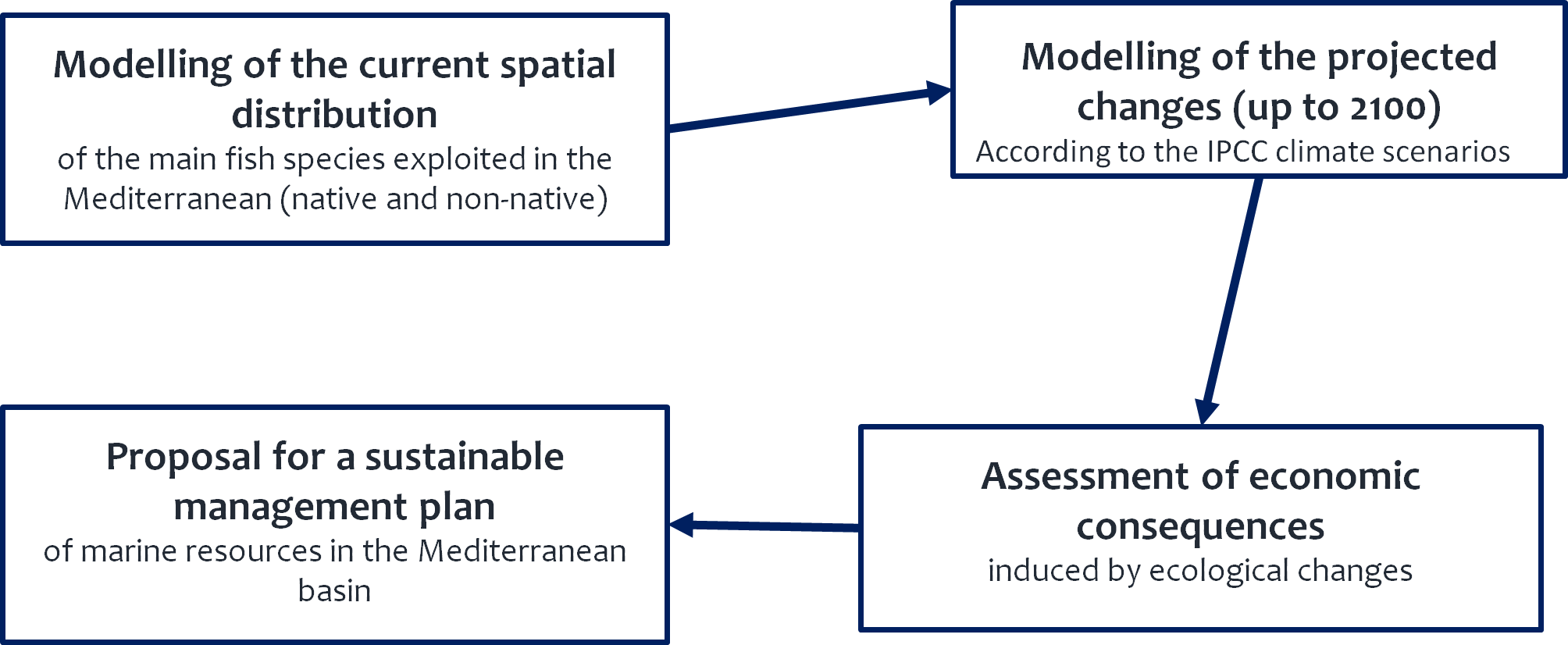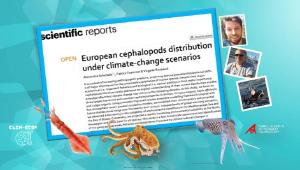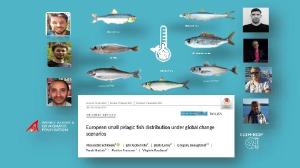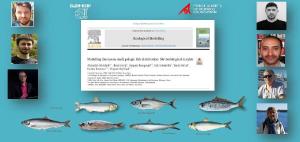CLIM-ECO2 Project

The Mediterranean Sea is one of the regions that could be the most affected by climate change, as it is a hotspot of biodiversity. By the end of the century, consequent changes in the fauna and flora distribution ranges are expected. The global warming will accelerate the decline of species with cold affinity, which will seek adequate environment elsewhere. The populations of some Mediterranean fishes and cephalopods, currently exploited, will therefore decline significantly over this century. Conversely, global warming will also induce the expansion of non-indigenous species (NIS). On one hand, these NIS could have a negative impact on native species and so disturb the ecological balance of the Mediterranean. On the other hand, some of these species, if edible, could constitute new food resources and therefore offer new commercial prospects.
SPECIFIC OBJECTIVES

The CLIM-ECO² project is a multidisciplinary project bringing together biologists, ecologists and economists, which aims, through modelling, to assess the impact of climate change on Mediterranean fisheries, from an ecological point of view (redistribution of stocks through distribution range changes), but also from an economic point of view (redistribution of income linked to fishing activity). Understanding how climate change could alter the fishing income of Mediterranean countries is crucial for well-being of populations in the future. Anticipation of climate-induced changes in fish populations aims to predict and minimize the risks in long-term investment strategies. Indeed, with the overexploitation of marine resources, decision-makers need urgently information and analysis to guide policy makers and investments.



















